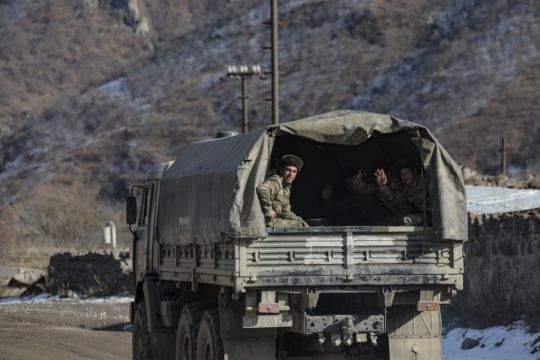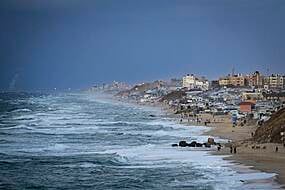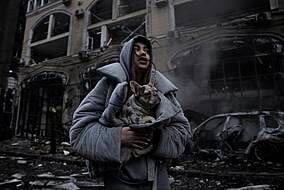Azerbaijani authorities disclosed for the first time details of the country’s military casualties in the recent fighting with Armenian forces over the separatist region of Nagorno-Karabakh, which was halted last month by a Russian-brokered truce.
Azerbaijan’s defence ministry said that 2,783 troops were killed during the 44 days of intense clashes, and 103 of them are yet to be identified.
More than 100 servicemen are considered to be unaccounted for, the ministry said, and 1,245 are currently undergoing treatment in medical facilities.
President Ilham Aliyev said earlier this week that 94 Azerbaijani civilians were also killed and 400 more have been wounded.
On Thursday, he signed a decree ordering a moment of silence at 12.00pm local time on Friday to honour the victims of the fighting.

Nagorno-Karabakh lies within Azerbaijan but has been under the control of ethnic Armenian forces backed by Armenia since a separatist war there ended in 1994.
That war left Nagorno-Karabakh itself and substantial surrounding territory in Armenian hands.
Heavy fighting erupted in late September, marking the biggest escalation of a long-simmering conflict between the two ex-Soviet nations.
The violence was halted by a Russian-brokered peace deal that took effect on November 10.
The agreement stipulated that Armenia hand over control to Azerbaijan of several regions it holds outside Nagorno-Karabakh’s borders.
Azerbaijan also retained control over areas of Nagorno-Karabakh it has taken during the conflict.

The deal was celebrated in Baku as a major victory.
Mr Aliyev on Wednesday declared a new national holiday, dubbed Victory Day, to mark the day when the truce entered force.
On Thursday, Mr Aliyev’s office announced moving the holiday to November 8, when the strategically important city in Nagorno-Karabakh, Shusha, was taken by Azerbaijani forces.
Mr Aliyev made the decision as November 10 is Ataturk Memorial Day in Turkey, Azerbaijan’s major ally, a statement by the Azerbaijani presidential administration read.
In Armenia, the peace deal sparked outrage.
Mass protests erupted in the capital Yerevan, with thousands regularly taking to the streets to demand the ousting of the country’s prime minister.







